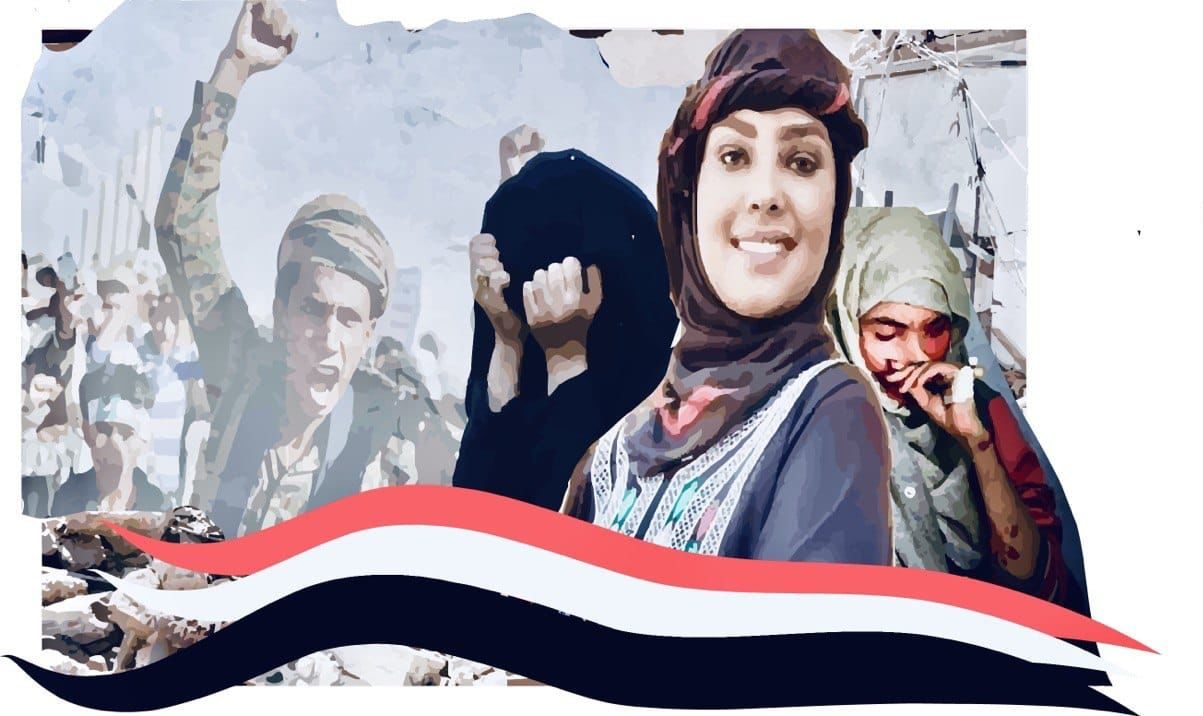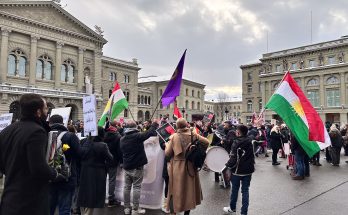[vc_row][vc_column][vc_column_text]
The number of women in Yemen who have been violated and arrested has significantly increased. Especially after the establishment of the Houthi group, „Ansar Allah,“ and their affiliated security faction, the „Zainabiyyat“.
[/vc_column_text][vc_column_text]
The number of women imprisoned in Yemen has surged since 2019, marking an unprecedented development since the Houthi coup against the government. Sultan Zaben is the most notorious figure in cases related to arresting and torturing women. The US Treasury Department listed him in a statement in December 2020, claiming that he was responsible for „the arrest, detention, and torture of women under the pretext of implementing a policy aimed at reducing prostitution and organized crime.“ This means politically active women who oppose the Houthis.
One of the most high-profile cases is that of actress Intisar Al-Hammadi and her colleague from the Shamlan neighborhood, west of the Yemeni capital, Sana’a, who were arrested and tried in February 2021. Al-Hammadi’s detention in Houthi prisons quickly became a public issue, with human rights activists demanding her release. Despite international appeals from various organizations, the Houthis have ignored calls to release female prisoners.
Lynn Maalouf, the Deputy Regional Director of Amnesty International, said that Al-Hammadi was punished for „challenging the social norms of Yemeni patriarchal society that perpetuates discrimination against women.“ According to Human Rights Watch, the Houthi authorities forced her to sign a document while blindfolded during interrogation and offered to release her if she helped them persecute their enemies with „sex and drugs.“ The Houthi authorities also demanded that Al-Hammadi undergo a „virginity test,“ which she refused. On November 9, 2021, after more than 15 «interogation sessions», the Houthi court issued a five-year prison sentence for committing of a „scandalous act“.
Although the Houthi group has the largest number of female prisoners, with over 1,800 women, other parties, such as the legitimate government and the Southern Transitional Council, have also been accused of arresting women. Journalist Hala Bathdawy was arrested by security authorities in the Hadramout Governorate, who accused her of communicating with a foreign country. In another case, journalist Maya Al-Absi, the presenter of Al-Saeedah TV, and her working team were arrested by a security force affiliated with the Southern Transitional Council in the city of Aden.
Before the outbreak of war, Yemeni women already faced various violations of their rights. The most significant cases related to the marriage of minors and violence against women, with no specific law that protects women in general. The penalty code of Yemen does not justify physical harm, but it doesn›t count domestic or gender-based violence, including psychological harm, as form of violence. The social norms in Yemen permit men to beat their wives, daughters, and sisters, the lack of an explicit legal provision covering domestic violence and other forms of violence against women makes this law inadequate.
Plus on it, there is no free access to healthcare and education. These topics remain one of the most pressing issues which women in Yemen have to face. Female detainees in prisons are particularly vulnerable since they are often abandoned by their families or legal guardians, hindering their release from prison as customs dictate that women convicted of criminal or honor-related offenses so that they deserve to be abandoned.
Read more on this topic:
- Houthi-run court jails Yemeni model for violating public morality
- Yemen: Released and exiled: Torture, unfair trials and Forcible exile of Yemenis under Huthi Rule
- Houthis Violating Women’s and Girls‘ Rights in Yemen
- Yemen: Authorities Failing to Protect People’s Basic Rights
- Zeinabeyyat: The Face of Female Militias in Yemen
- UN: Houthi rebels in Yemen recruited teenage girls
[/vc_column_text][vc_column_text]

Article by Firas Shamsan, a Yemen journalist and writer who lives in Bern
[/vc_column_text][vc_column_text]
Read the artile in the the original language:
[/vc_column_text][/vc_column][/vc_row][vc_row][vc_column][vc_column_text]
[/vc_column_text][/vc_column][/vc_row]




